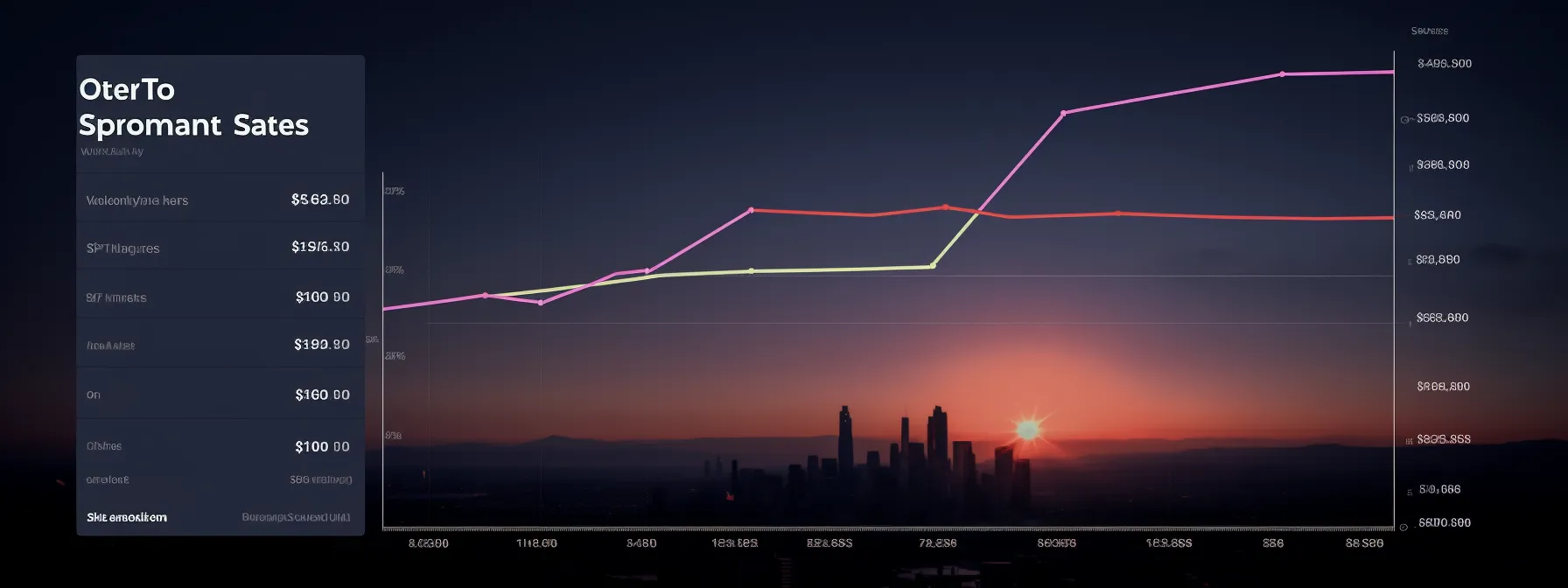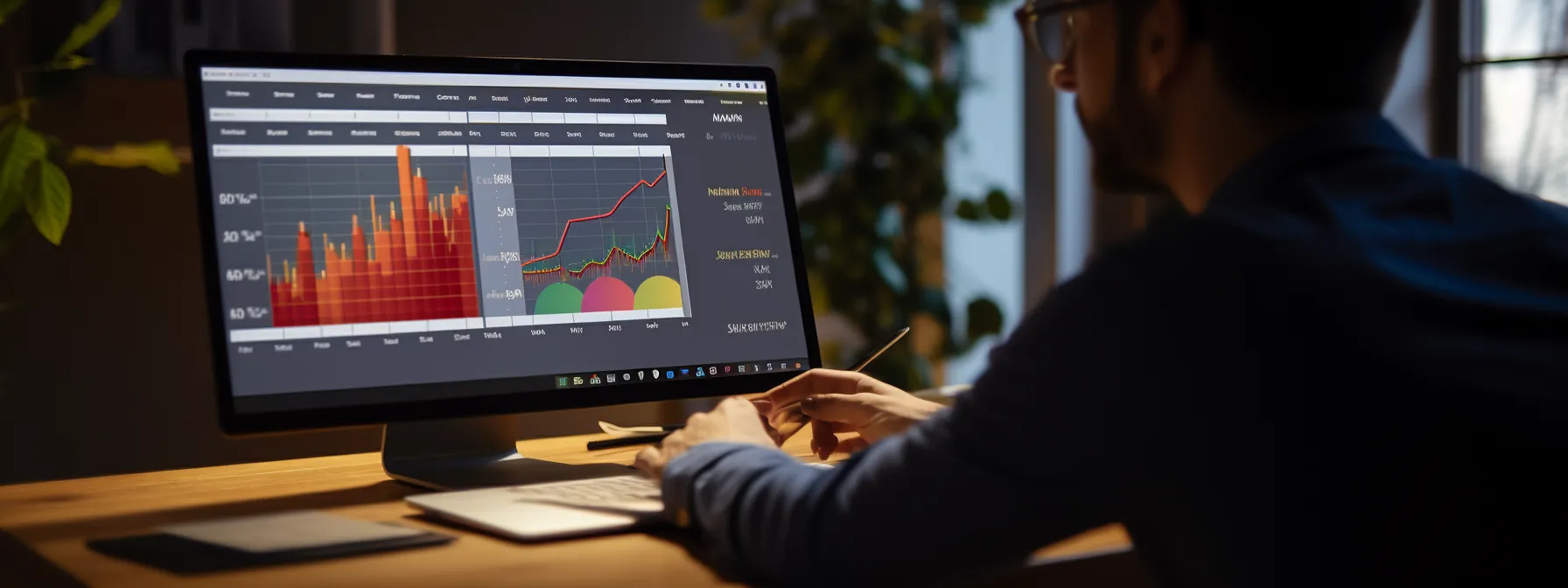Understanding Social Signals: How They Impact Online Success
Understanding Social Signals: Their Impact and Significance in SEO As a cornerstone of Search Engine Optimization (SEO), understanding social signals has become more important than ever. Traditionally, […]
Understanding Social Signals: Their Impact and Significance in SEO
As a cornerstone of Search Engine Optimization (SEO), understanding social signals has become more important than ever.
Traditionally, SEO has leaned heavily on backlinks, domain authority, and keywords, but social signals have quickly risen as a crucial ranking factor that cannot be overlooked.
These signals stem from human interactions on social media platforms, reflecting how users engage with and share web content, akin to a digital form of “body language.”
For a detailed guide on how to optimize your social signals effectively, keep reading this comprehensive study.
Key Takeaways
- Social signals are an important ranking factor in SEO and can contribute to a website’s organic search ranking
- Social signals provide a unique form of validation and indicate popularity and audience engagement with content
- Social signals should be considered alongside traditional link-building strategies to enhance a website’s domain authority
- Different social media platforms play different roles in generating social signals, with each platform contributing varying levels of impact
- Marketers should not underestimate the value of social signals in SEO and should develop strategies to enhance social interactions on social media platforms
Defining Social Signals in the Context of SEO

Social signals refer to the collective shares, likes, and overall social media visibility as perceived by search engines. These activities contribute to a web page’s organic search ranking, showcased by reputable SEO experts across the platform. This is a relatively new development in the world of search engine optimization, with the term ‘social signals’ even coined by former Google Web Spam team head Matt Cutts.
The principle behind social signals revolves around organic, human interaction on social media platforms. Traditional metrics, such as backlink profiles, have historically been major ranking factors. These signals were a proverbial thumbs up from other domain authorities, affirming the value of a webpage’s content and it’s credibility.
However, with the advent of social media sites and their integration into people’s everyday life, a new ranking factor emerged. The likes, shares, retweets, and other similar reactions these sites can generate signify a unique form of validation:
- It’s a signal of popularity, directly implicating how the content resonates with the target audience.
- The human interaction on these platforms provides a rich context, much like body language, which helps in determining the value of the content.
The introduction of these social signals into the SEO landscape has presented a more dynamic way to measure the quality of a site. They complement traditional link-building strategies, lending more depth to search engine’s understanding of a website’s value.
Truly, Search Atlas by LinkGraph, with its high-quality backlink and search traffic services, is a testament to this evolution, proving that complying with Google’s link building strategies can significantly enhance a website’s domain authority.
Evolving Importance of Social Signals in SEO

As SEO practices continue to evolve, the relevance and significance of social signals in SEO operations become more substantial. While traditional link-building methods implemented in web page optimization still hold their importance, the role of social interactions cannot be undermined. The digital landscape is dynamic, making SEO a constantly shifting field that embraces changes aligning with the trends and preferences of netizens.
From a mere stepping stone, social signals have carved a distinctive identity within SEO. Their importance was first referenced when search results began favoring web pages with active social media posts and high engagement rates. Immediate shares, likes, and other social media interactions gave substantial credibility to the web page content, equating it to a quality validation check by the human audience.
In the tech-savvy world, where interactions are increasingly becoming digital, the Search Atlas by LinkGraph has integrated social signals into its SEO strategy. The tool equips users with a backlink analyzer to streamline link building and optimise search traffic. Having acknowledged the relevance of social interaction, it monitors social signals to inform its strategies, reflecting their growing significance in enhancing search engine rankings.
Undoubtedly, SERP rankings are no longer solely dependent on domain authority, backlink profiles, or even the keyword density. As algorithms continue to advance, they incorporate more human-like elements into their understandings of what qualifies as noteworthy content. Social signals, thus, have emerged as a powerful tool that mimics human behavior, further emphasizing their evolving importance in the world of SEO.
Case Study: Impact of Social Signals on Website Ranking

A practical example assists in understanding the real-world impact of social signals on website ranking. Consider the case of a newly launched SaaS platform based in Bielefeld, which initiated an aggressive social media campaign to drive organic traffic to its main webpage. This strategy involved creating regular content on social media platforms and encouraging user interaction through comments, likes, shares, and retweets.
This strategy soon began to bear fruit. Within a month, their social media posts started gaining traction, gathering substantial likes, shares, and comments. As such, the human interaction with their content started working its charm and their website began to climb in search engine rankings.
Three months post the campaign launch, the website had a noticeable spike in its organic traffic. The webpage found itself amongst the top search results, validating the power of concentrated social media engagement. Interestingly, along the journey, they found a reliable partner in Search Atlas by LinkGraph that equipped them with a backlink analyzer and facilitated link building.
In conclusion, this case study effectively illustrates how an active social media presence and high user interaction can influence search engine rankings. As evident, the relevance of social signals is undeniable in the SEO industry, making them a crucial aspect of website optimization strategies today.
Role of Different Social Media Platforms in Generating Social Signals

Various social media platforms play different roles in generating social signals that SEO experts seek. Each platform carries a set of unique features and audience demographics, making them varying sources of social signals. Consequently, the impact and significance of each platform’s contribution to social signals vary.
Platforms like Facebook and Instagram, for instance, facilitate a larger, more diverse conversation amongst users. With their broad user base, the retweets, comments, likes, and shares generated can significantly boost the social signals of a webpage. On the other hand, LinkedIn, with its professional user base, can help amplify articles, job postings, and other professionally relevant content.
How each platform influences the social signals of a page can be outlined as follows:
- Facebook and Instagram: Help generate a large volume of likes, shares, and comments, hence amplifying the social signals.
- LinkedIn: Provides a platform for posting and sharing professional content, helping gather a specific target audience.
- Twitter: With its quick “tweet culture”, allows high-frequency content sharing, contributing to the overall social signals.
Recognizing the role of each platform and leveraging them carefully can significantly extract beneficial social media signals. This understanding can help web owners and SEO experts like LinkGraph to devise targeted strategies, thereby utilizing the potential of each platform to boost social signals and ultimately, the search engine rankings of their webpage.
Barriers and Misconceptions: Understanding the Challenges With Social Signals

While the power of social signals in SEO cannot be underestimated, there are certain challenges associated with them. The most common hurdle that marketers face is the misconception that social signals hold no real value in the SEO world. The argument is that since social media sites nofollow all external links, these links carry no weight in the eyes of search engines.
Such misunderstanding can lead to under-utilizing the potential of social signals. It can cause businesses to invest minimal resources in social media efforts, missing out on a significant opportunity to boost their site’s search engine rankings. While it’s true that social media links are nofollow, this does not entirely dismiss their value.
Another barrier is the volatile nature of social media trends. As trends come and go with extreme speed in the world of social media, relying heavily on them can be risky. A sudden shift in trend can lead to a dramatic drop in social interactions, thereby affecting the social signal strength of a web page.
Overcoming these barriers requires understanding the correct value of social signals and being flexible with social media strategies. As trends change, so should the strategies. Additionally, even when social media links are nofollow, the human interactions they showcase can prove valuable for search engine ranking. Hence, the investment in social signals should be encouraged.
Strategies for Boosting Social Signals for SEO

Being aware of the significance of social signals on SEO outcomes, web page owners and SEO experts are often on the lookout for strategies to boost these indicators. Enhancing social signals requires reaching and engaging with the target audience on social media platforms. It is not just about creating social media content but ensuring it resonates with and prompts action from viewers.
Developing engaging content is key to sparking interest and spurring social interactions. Taking cues from trending topics, aligning them with your brand image, and creating relatable content can encourage viewers to interact with posts. Frequent and regular posting is also crucial to maintain visibility and engage more with the audience.
To optimize social signals, specific strategies should be followed:
- Create compelling, topical, and visually attractive content that prompts shares, likes, and comments.
- Develop a regular and consistent posting schedule to maintain visibility and engagement levels.
- Conduct regular analysis of performance metrics to modify strategies as per user feedback and preferences.
Streamlining link building, attracting high-quality backlinks, and choosing the right link building services are also integral to complement social signals. A combination of these strategies, such as those offered by Search Atlas by LinkGraph, can yield productive results, profoundly improving a web page’s search engine ranking and overall domain authority.
Conclusion
In conclusion, understanding the impact and significance of social signals in SEO is essential in an increasingly digital landscape where human interaction online is paramount.
Despite common misconceptions, these signals, driven by human engagement on social media platforms, play a critical role in search engine rankings.
The diverse social media platforms each contribute uniquely to the generation of these signals, necessitating a clear understanding of their respective potentials.
While challenges exist, chiefly in the misconceptions around social signals and the ever-changing trends, they can be navigated by employing web page optimization strategies aligned with the evolving digital environment.
Tools like Search Atlas by LinkGraph, which encompass high-quality backlink services and Google-compliant link building strategies, are proving instrumental in navigating the dynamic field of SEO, thereby making the use of social signals a pertinent strategy.















































































